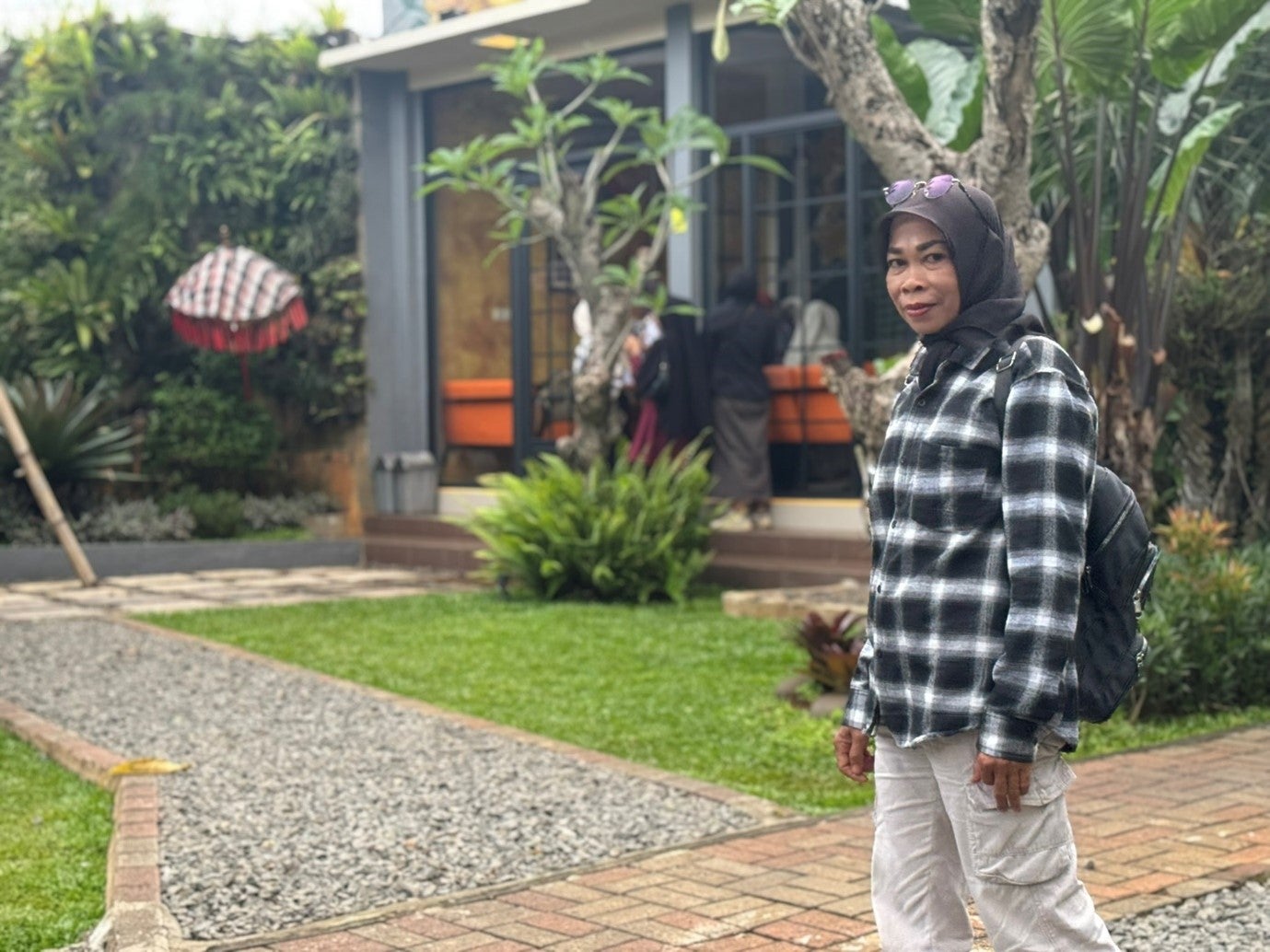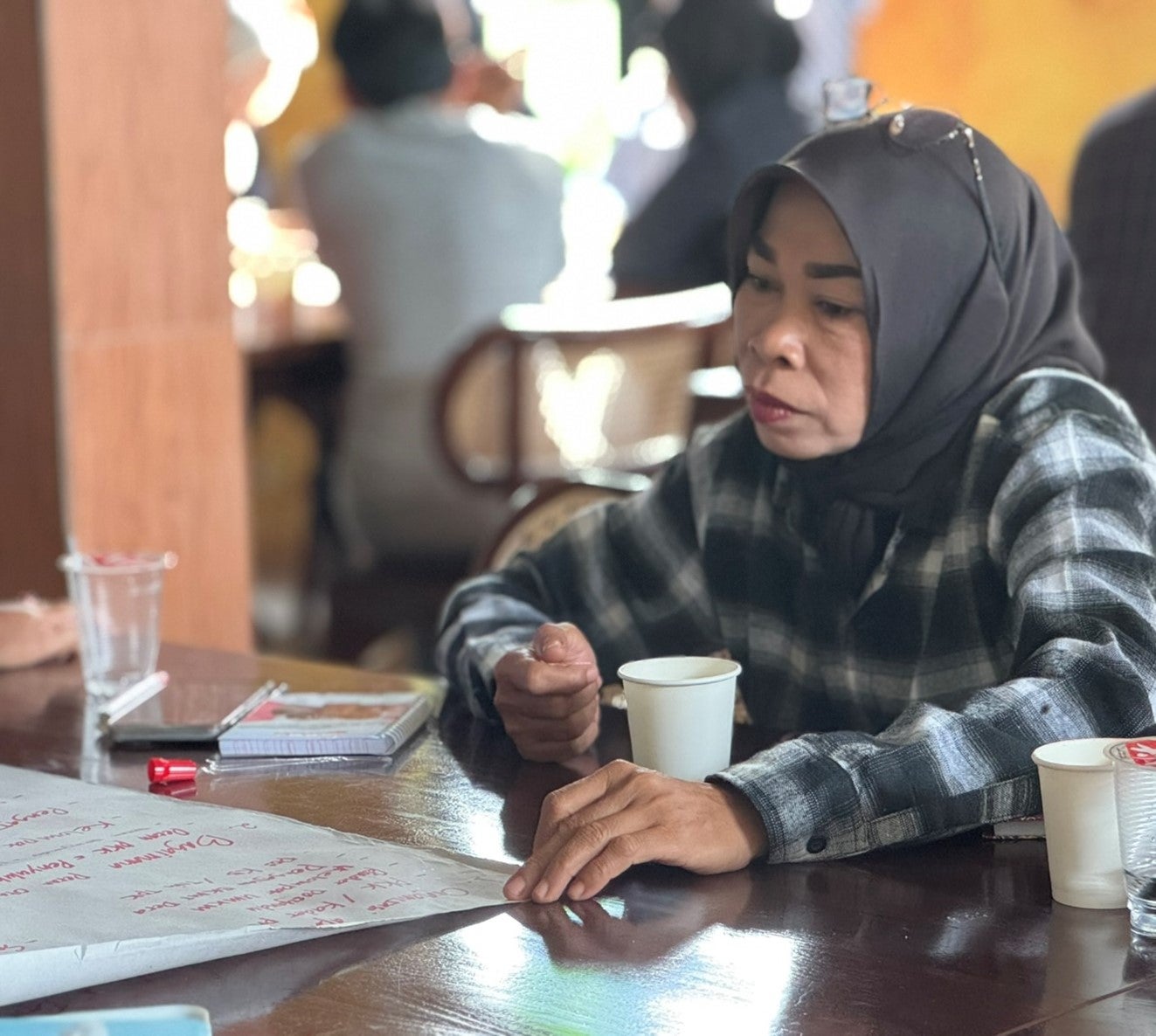From where I stand, Aneng Sugiyarti: We live in peace in our diverse community
Date:
Interview by Inggita Notosusanto

Aneng Sugiyarti, 45, is a mother of two and a resident of Kampung Baru Cina in Tajurhalang Village, Depok in West Java, Indonesia. She is an active participant in the Desa Damai (Peace Village) program, an initiative by the Wahid Foundation supported by UN Women and the Government of the Netherlands. Her village is uniquely diverse, with inhabitants from various ethnic and religious backgrounds, contrasting with the predominantly Muslim Malay population of Depok. Through the Desa Damai program, she has successfully motivated her neighbors of different faiths to join community activities, fostering social engagement and cohesion. One of the program's notable initiatives, Imah Tentrem (Peace House), addresses community issues and ensures that village administrators respond effectively to residents’ concerns.
My village is home to people from diverse ethnic and religious backgrounds. As the name “Kampung Baru Cina” suggests, a significant portion of the population is of Chinese descent. Among us are Muslims, Confucians (Kong Hu Cu), Buddhists, and Christians. Diversity often leads to conflict and divisiveness in communities. However, despite these differences, we live harmoniously. When there are religious or cultural events, we come together to assist and participate.
This sense of unity I experienced in my own community inspired me to encourage neighbors from all backgrounds to join the Desa Damai program, which is carried out by the Wahid Foundation with the support of UN Women. I have observed that in other villages there is still deep distrust between people of different faiths and ethnic groups, and it’s important to be proactive in nurturing a peaceful community that respects diversity.
This year, the Desa Damai program held three meetings focusing on early detection of extremist religious views that could threaten our harmony and on strengthening cooperative initiatives within the community. It also provided us with valuable opportunities to build important skills, such as public speaking. Before joining the program, I was timid and shy, but the training helped me build confidence and find my voice in public settings. After participating in several of Wahid Foundation’s trainings, I have been able to apply what I learned both in my community work and to grow my small business.
We also established a platform to address pressing community issues, which we named Imah Tentrem (Peaceful House). It is comprised of a group of volunteers who are active participants in the Desa Damai program and operates with support from local village administrators. When we get together, we share the challenges that we face in our daily lives to get both advice and words of comfort from other members. I invited my neighbors who are of Chinese descent to join and be involved in our activities. Together, we’ve successfully resolved various issues through collaboration with village leaders.

Currently, one of the most pressing challenges in our community is violent student conflicts. I believe we can mitigate these problems by strengthening our early detection practices while continuing to support the village leaders in their patrols and intervention efforts.
Looking ahead, I hope we can expand our activities to the RW (Rukun Warga) level, spreading the principles and practices of the Desa Damai program to neighboring villages.
The Desa Damai (Peace Village) is a program led by UN Women in partnership with the Wahid Foundation in West Java since 2017, and extended until 2024, supported by the Government of the Netherlands. Implemented in villages in Depok and Bogor, West Java, the program focuses on women’s empowerment and peacebuilding to address conflicts that occur in the communities.
Aneng Sugiyarti’s work contributes to Sustainable Development Goal (SDG) 5 on gender equality and the empowerment of all women and girls, and SDG 16, which promotes peaceful and inclusive societies.